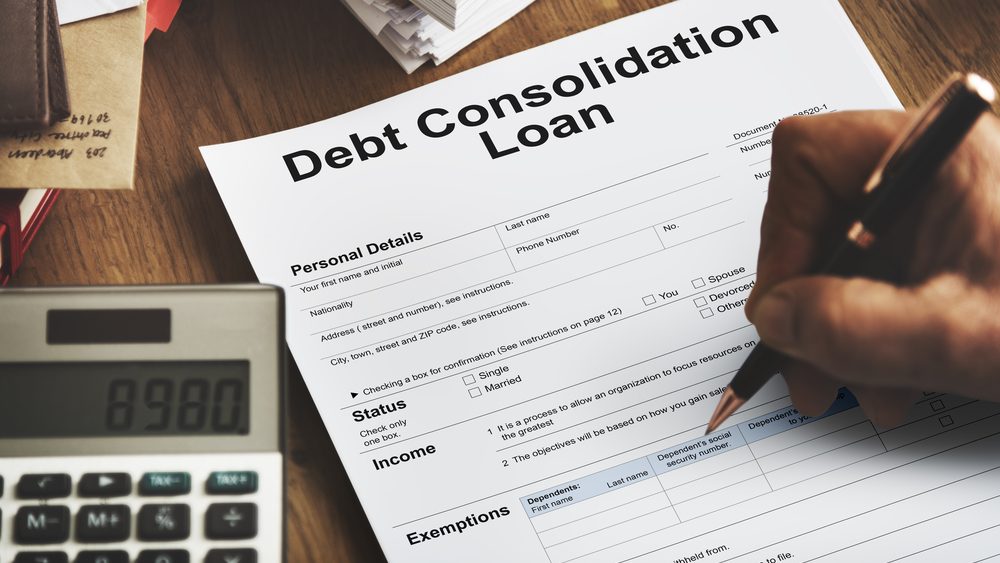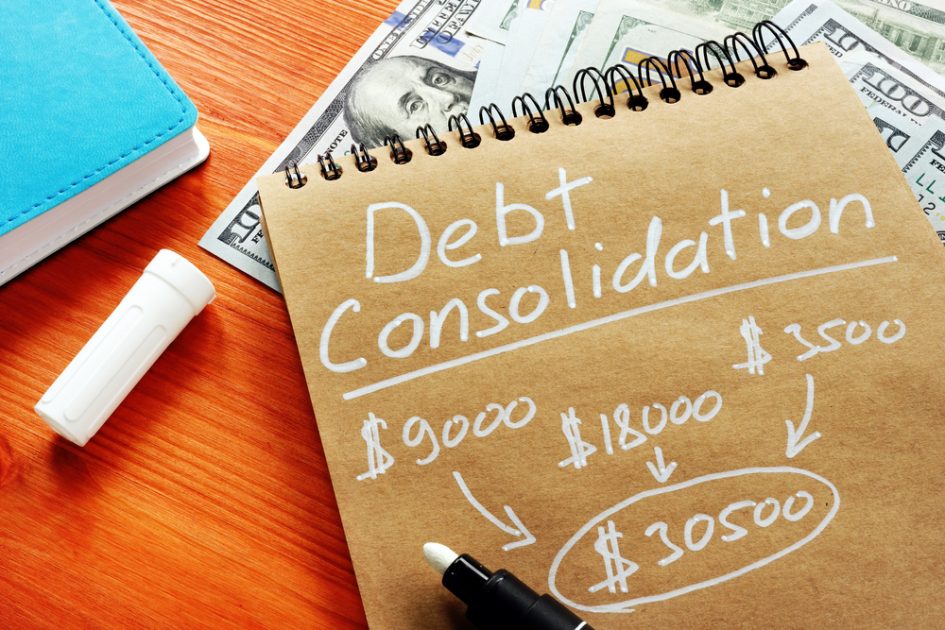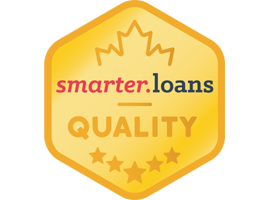If you’re struggling with debt, consolidating your loans can be a great way to save money and get back on track. debt consolidation loans can help you save money on interest, reduce your monthly payments, and get out of debt faster.
But how do you know if consolidation is right for you? Read on to learn everything you need to know about consolidating debt.
What Is Debt Consolidation and How Does It Work?

Debt consolidation is the process of taking out a new loan to pay off multiple existing debts. This new loan is typically used to pay off all of your existing debts and replace them with a single larger loan.
The key benefit of debt consolidation is that it can help reduce the amount of interest you’re paying on each loan. Instead of paying multiple loans with different interest rates, you’re only responsible for one monthly payment. That single payment can be less than the total you previously paid on all your debts.
Also, debt consolidation may help you get out of debt faster. When you consolidate your loans, you’re typically given a fixed repayment period (or term) to repay what you borrowed. This allows you to close out your accounts faster and become debt-free sooner.
The Benefits of Consolidating Your Debt

There are multiple benefits to consolidating your debt with a personal loan. Here are a few of the biggest ones.
Lower Interest Rates
Consolidating your debt can help you save money on interest, especially on credit card debt and payday loans. When you consolidate all of your loans into one, you may be able to get a lower interest rate than what you’re currently paying on each loan.
Lower, Fixed Monthly Payments
By combining outstanding debt into one loan, you will likely decrease the amount you owe each month for your minimum monthly payment. This makes managing your monthly payment and budget for other essential expenses easier.
Simplified Bill Management
When you consolidate debt, you won’t have to keep track of multiple monthly bills and credit card balances. Instead, you’ll only be responsible for one payment covering all your debts. This makes it easier to stay on top of your bills and pay on time.
Get Rid Of Debt Faster
Given the fixed repayment terms offered by debt consolidation programs, you may be able to pay off your debts faster than if you had kept them separate. This means you can become debt-free sooner and start saving for other financial goals.
Improved Credit Score
Making timely payments on your debt consolidation loan can help improve your credit score and credit report over time. This, in turn, may make it easier to borrow money for future purchases and get access to better interest rates.
Reduced Stress and Anxiety
Managing multiple debts can be stressful and overwhelming. Consolidating your debt can help reduce this stress as you work toward becoming debt-free.
The Risks Associated With Consolidating Debt

That said, there are a few risks associated with consolidating your debt.
Here are a few things to keep in mind:
You Could End Up Paying More in Interest
If you consolidate your debt with a new loan, you could pay more in interest over time. This is because you’ll be extending the life of your debt, which means you’ll be paying interest for a more extended period of time.
You Could Get Penalized For Missing Payments
If you consolidate your debt and then miss a payment, you could be hit with late fees and penalties. This could further damage your credit score and make it even harder to get out of debt.
You Could End Up Using Your Home as Collateral
If you consolidate your debt with a home equity loan, you could put your home at risk if you can’t make the payments. Make sure you understand the terms of the loan and are confident you’ll be able to make the payments before you put your home on the line.
You Could End Up in a Cycle of Debt
If you consolidate your debt and start using credit cards again, you could end up right back where you started. It’s essential to change your spending habits along with consolidating your debt, so you don’t end up in a never-ending cycle.
How to Choose the Right Type of Debt Consolidation Loan

In Canada, the average amount of consumer debt per person is over $21,000, and many people are looking for ways to consolidate their debt and save money.
Here are a few things to consider when choosing a loan to consolidate your debt:
The Interest Rate
When consolidating debt, you’re looking for a lower interest rate to save money on interest payments. Be sure to compare interest rates from different lenders before you choose a loan.
The Term
The term is the length of time you have to repay the loan. A longer term will mean lower monthly payments, but you’ll pay more in interest over the life of the loan.
A shorter term will mean higher monthly payments, but you’ll pay less interest.
The Fees
Some loans come with fees, such as an origination fee or a prepayment penalty. Be sure to compare the fees from different lenders to ensure you’re getting the best deal.
Your Credit Score
Your credit score will affect the interest rate you’re offered on a consolidation loan. If you have good credit, you’ll likely be offered a lower interest rate.
If you have bad credit, you may still be able to get a consolidation loan, but the interest rate could be higher.
Conclusion
Overall, consolidating your debt can be a great way to save money on interest payments and simplify your monthly repayment schedule. With the right strategy and a bit of planning, you can save time and money while reducing the stress of managing multiple loans. Remember to do your research before taking out any loan and read up on financial best practices so that you can feel confident in your ability to manage all of your debt responsibly.
If you’re struggling with high interest rates and minimum payments, consolidating your debt could save you money. A debt consolidation loan from SkyCap Financial could help reduce your interest rate, lower your debt payments, and get you out of debt faster. We offer loans to people with low credit or poor credit and can help regardless of your financial situation. Apply today!







